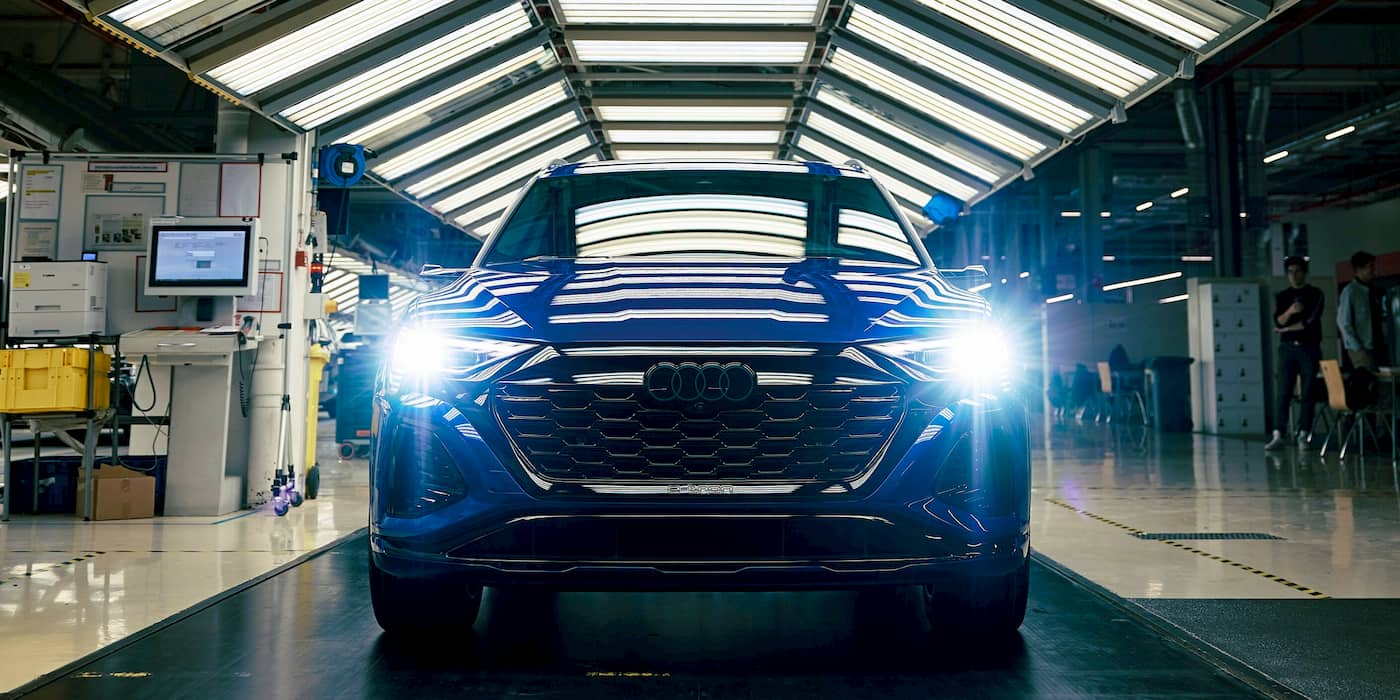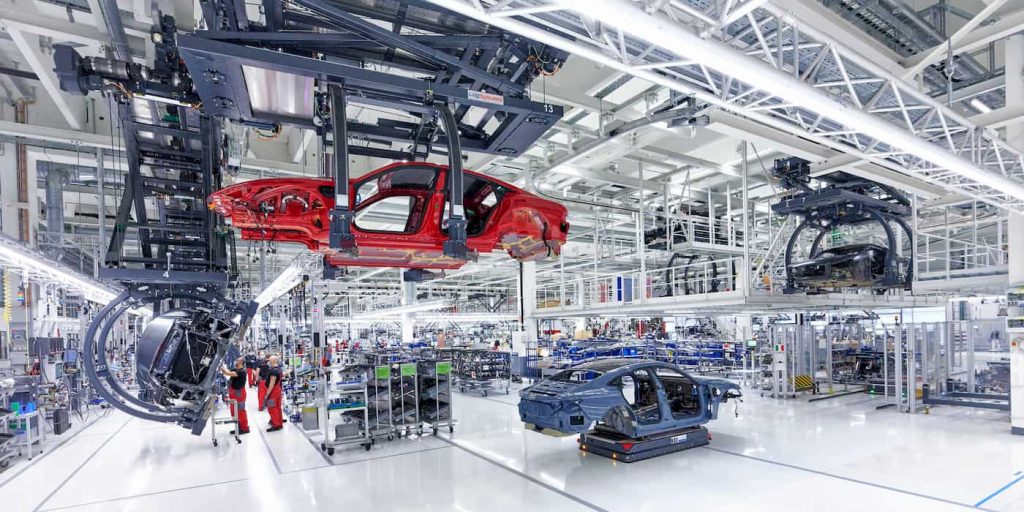
Audi is preparing to convert its entire network of global production factories to manufacture electric vehicles as it gears up to compete in the auto industry’s future.
The German luxury automaker is going “all in” on electromobility as it prepares to bring the brand known for its four rings into the future.
After several years of teasing fans, Audi’s first purely battery-electric vehicle to go into production, the e-tron began deliveries in 2019. After getting off to a slow start, a significant update in 2021 that included an extended range and a lower price point, the e-tron gained its footing.
Since then, Audi has expanded its EV lineup to include an e-tron S, e-tron GT, e-tron Sportback, Q4 e-tron, and Q8 e-tron. Through the first nine months of 2022, Audi increased fully electric vehicle sales by 53.8% on strong market demand.
However, Audi doesn’t plan to let momentum fade. Audi announced last year that its last combustion car would roll off the line in 2033 (if they are still around then), launching only electric vehicles from 2026.
To better compete in the new EV era and ease the transition, Audi will convert all exiting existing production factories to build electric vehicles by 2029.

Audi prepares global factories to build electric vehicles
Audi board member for production and logistics Gerd Walker said, “Step by step, we are bringing all our sites into the future” as the automaker prepares to go all in on electric vehicles.
In a press release Tuesday, Audi presented the “plan for the production of the future,” including converting its network of global factories to produce purely electric vehicles.
Walker added:
The path Audi is taking conserves resources and accelerates our transformation to a provider of sustainable premium mobility.
Rather than building new facilities like some competitors, Audi will work to incorporate the flexibility these new state-of-the-art plants provide into its existing operations.
A primary focal point of Audi’s production plan is to cut annual factory costs in half by 2033, aligning with when it plans to phase out combustion models. To do so, the company will continue to digitalize and streamline its manufacturing processes with solutions like Edge Cloud 4 Production.
Top comment by EhCanadian
10 years for a company to stop producing the product they've produced for nearly a century, and completely transition to a new product. I don't think that's so bad.
According to Audi, less expensive industrial PCs will result in lower IT costs with software updates and OS changes.
To have the ability to respond to fluctuating consumer demand, Walker says:
We want to structure both product and production so we get the optimum benefit for our customers.
He adds an example of building the new Audi Q6 e-tron on the same line as the A4 and A5 as it phases out its gas models.
As the auto industry’s transition to electric accelerates, more automakers are reworking their production network to better compete. For example, Mercedes-Benz also announced last week it would retool its powertrain production network to support its own EV rollout.
FTC: We use income earning auto affiliate links. More.


Comments